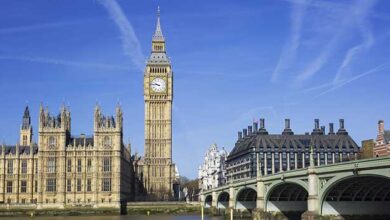Nigeria’s spiralling debt burden


How much of the concerns around this new “debt trap” is a dialogue about poor revenues? All of it, it would seem. But this is far from the same as inviting discussion of the public sector’s revenue-raising capacity or reform of the public expenditure management framework. You cannot manage an economy as poorly as Nigeria’s has been over the years, and not experience the current bulimia for borrowing.
It is no longer news that over the last few years, Nigeria has ratcheted up public debt as if it had been informed by some insider that the debt taps will soon be turned off. In the last five years, the country’s debt management policy has pirouetted between local and foreign borrowing ― seeking to take advantage of relatively cheap borrowing costs. And, not too long ago, in aid of the government’s large and growing appetite for borrowing, the central bank has pushed the domestic cost of funds down, even as inflation has become a problem.
Understandably, worriers have ranged from concern over the economy’s ability to sustainably support the new debt stock, to those who fret that even the current costs of this borrowing, including the erosion through near-zero interest rates of the value of funds held in private pension accounts, have become an albatross around the country’s fiscal neck. As at March this year, Nigeria’s public debt (US$87.24 billion) is now much more than the US$46.2 billion level at which it was in 2006, when we negotiated the debt forgiveness deal with the Paris Club.
Under pressure to justify this state of affairs, the Buhari administration has explained this build-up of debt in terms of its need to fund much-needed investment in infrastructure. On balance, this is how it should be since a dearth of social and public infrastructure have been implicated in the country’s abysmal productivity levels. Most experts are agreed that we cannot reverse the economy’s decline (and much of its political and social problems) without fixing the twin problems of decrepit and inadequate infrastructure. By extension, it then ought to be the case that if the infrastructure that government has borrowed to fund feeds into improved productivity levels, then this debt will eventually pay its way.
At full throttle, the economy ought to pay its way out of the so-called debt burden without too much fuss. Not just are all things never equal, statistically, we also are aware that the economy is nowhere near operating at full throttle. Not today. Not any time soon.
Then, there is the allied argument that as a proportion of domestic output, around 12 per cent of the total debt is middling. At full throttle, the economy ought to pay its way out of the so-called debt burden without too much fuss. Not just are all things never equal, statistically, we also are aware that the economy is nowhere near operating at full throttle. Not today. Not any time soon. We will require root-and-branch reforms to the criminal justice system if we are to strengthen the trust without which investment in the economy will not happen at the requisite levels. Our large population will remain kindling of all manners of anti-state rebellions without investment in education and health. And without changes in both these sectors of our economy, it cannot fire on all cylinders.
Can we bring about these reforms? Not soon enough. Even then, there are doubts if anyone in authority knows what full throttle for the economy is anymore. Not just is unemployment at unusual highs. A worsening security situation and a government clearly hostile to private sector activity have halted investment of any sort in the economy. Both these new ills have combined to drive a migration of domestic savings away from naira-denominated assets to inflation-proof vehicles, heaping additional pressure on inflation, as a waning naira imports higher priced goods.
…the incremental debt in recent years now goes to meet the public sector’s large wage and overhead bills. If the numbers from last year are to be believed, an even larger proportion of government revenue (circa 90 per cent) may have been expended on meeting debt service payments.
That, again, is far from all that we know. We also know that not all of the huge and rising public debt was used to fund the accumulation of capital assets. At around a third of the Federal Government’s annual budget, spending on capital projects has always been miserly, at best. Thus, the incremental debt in recent years now goes to meet the public sector’s large wage and overhead bills. If the numbers from last year are to be believed, an even larger proportion of government revenue (circa 90 per cent) may have been expended on meeting debt service payments.
How much of the concerns around this new “debt trap” is a dialogue about poor revenues? All of it, it would seem. But this is far from the same as inviting discussion of the public sector’s revenue-raising capacity or reform of the public expenditure management framework. You cannot manage an economy as poorly as Nigeria’s has been over the years, and not experience the current bulimia for borrowing. Neither ought we to hope that we may somehow earn enough revenue to do anything worthwhile.
Uddin Ifeanyi, journalist manqué and retired civil servant, can be reached @IfeanyiUddin.







